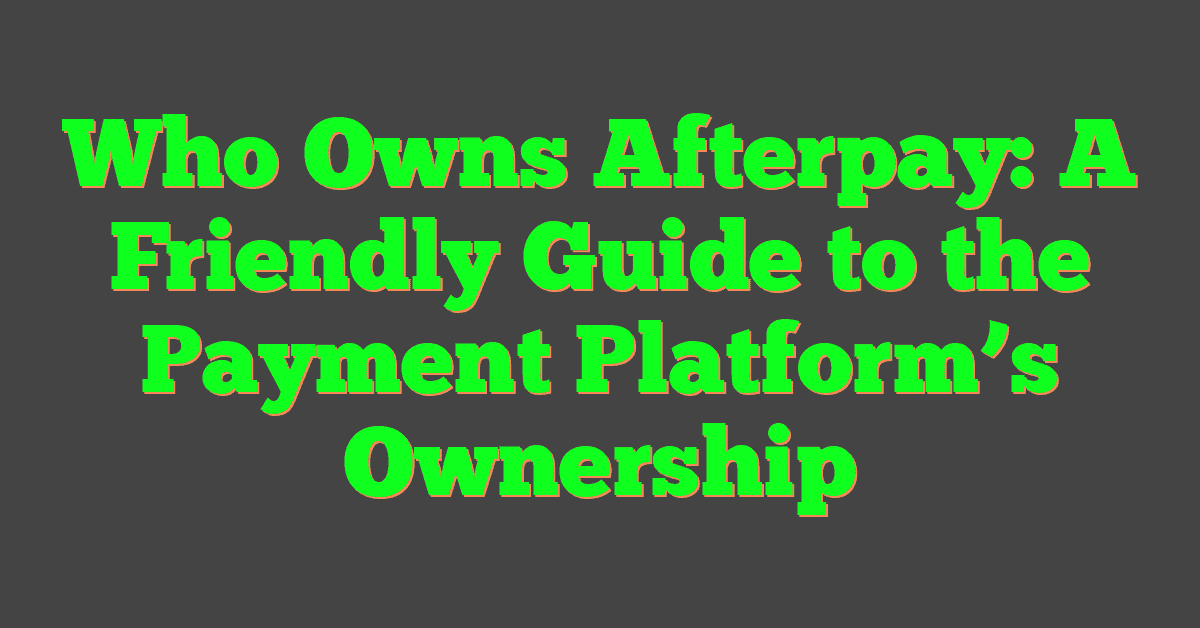Key Takeaways
- Q Link Wireless is owned by Issa Asad, who founded the company in 2011 with the mission of providing affordable connectivity to underserved communities through the Lifeline Assistance program.
- This wireless provider offers free phone service, including unlimited talk, text, and data, to eligible low-income individuals, often benefiting those on government assistance programs like SNAP or Medicaid.
- Q Link Wireless successfully combines social impact and profitability, leveraging federal funding to bridge the digital divide while growing its customer base.
- The company has faced some challenges, including legal issues and customer complaints about data security, compliance, and service delays, highlighting the importance of transparency and operational efficiency.
- With advancements like 5G and increasing demand for affordable connectivity, Q Link continues to innovate in the telecommunications space, positioning itself as a key player in meeting underserved market needs.
When I first heard about Q Link Wireless, I was curious about the company behind it. With its promise of free phone service for eligible individuals, it’s no surprise that many people want to know more about who runs the show. After all, understanding the ownership of a company can give us insight into its mission and values.
Q Link Wireless has made a name for itself by helping people stay connected, especially those who need it the most. But who’s the driving force behind this operation? If you’ve ever wondered about the faces and names responsible for Q Link’s success, you’re not alone. Let’s dive into the ownership and uncover the story behind this well-known wireless provider.
Overview Of Q Link Wireless
As someone who loves exploring side hustles and new business ideas, I find companies like Q Link Wireless fascinating. They’re not just service providers; they solve real problems, like offering free phone service to those who need it. Q Link Wireless operates as a Lifeline Assistance program participant, which is a federally funded initiative designed to help low-income individuals stay connected.
The company provides free monthly cell phone service that includes talk, text, and data for eligible users. These users often include people receiving government assistance, like SNAP or Medicaid. This business model combines a socially impactful mission with a solid revenue stream, a combination I respect as both an entrepreneur and someone always looking for scalable business ideas.
Understanding who owns and runs Q Link Wireless helps clarify how they’ve built such a strong presence in this market. It’s one of those stories where business meets purpose, which is something I look for when evaluating ventures or income streams worth pursuing.
History Of Q Link Wireless
Q Link Wireless has a story that shows how a simple idea can scale to impact millions. For someone like me who’s into small businesses and side hustles, understanding their journey provides valuable insights into creating purposeful and profitable ventures.
Founding And Initial Growth
Q Link Wireless was founded in 2011 by Issa Asad. The company started with a clear mission: to bridge the digital divide by providing free or low-cost wireless services to low-income individuals. As someone who’s always analyzing business strategies, I find this model brilliant. They tapped into the Lifeline Assistance program, a federally funded initiative, to create a service that fulfills both a social need and a business opportunity.
The early years focused on building partnerships with service providers and enrolling eligible customers. This foundation laid the groundwork for the company to scale quickly. That kind of rapid growth reminds me of some of my own side hustles—when demand aligns with a solid plan, momentum builds fast.
Major Milestones
Q Link hit several key milestones that boosted their reputation and reach. By 2017, the company became one of the fastest-growing Lifeline providers. What stood out to me is their ability to adapt to market changes, like offering smartphones and data plans as connectivity needs evolved. They also leveraged technology to streamline enrollment, making it easier for customers to sign up.
In 2020, they launched free unlimited data, talk, and text plans, a huge pivot that caught my attention. It’s an example of how businesses can stay competitive by overdelivering value. That kind of innovative thinking inspires me for my own ventures—always looking for ways to give more while staying profitable.
Who Owns Q Link Wireless
Q Link Wireless stands out as a business with a strong mission and scalable revenue model. Learning about the ownership gives insights into the strategic vision that propelled it to success.
Current Ownership Details
Issa Asad owns Q Link Wireless. As the founder and CEO, he started the company in 2011. His mission centered on providing affordable connectivity to underserved communities. By leveraging the Lifeline Assistance program, he successfully aligned a social mission with a sustainable business model.
As someone obsessed with balancing passion and profitability, I admire how Issa identified a government-backed opportunity and built a business around it. The company continues to thrive under his leadership, growing its customer base and enhancing its service offerings.
Key Individuals Behind The Company
Issa Asad plays the most pivotal role, serving as both the visionary and decision-maker. He has over 20 years of experience in the telecom industry, which undoubtedly contributed to Q Link’s success. His background also includes writing books on marketing and business growth.
While Issa leads the company, Q Link’s success comes from a broader team. The organization relies heavily on a skilled management team to handle operations, customer service, and compliance. These individuals ensure the business runs smoothly, despite regulatory complexities and scaling challenges.
I respect how Issa’s leadership mirrors the discipline I value in building new income streams. His ability to adapt and innovate is something any entrepreneur can learn from.
Services Provided By Q Link Wireless
Q Link Wireless offers services designed to help people stay connected, especially those who might struggle with traditional service costs. I find this interesting because it’s a mix of social impact and business—a combo I always look for when exploring new side hustles or startup ideas.
Lifeline Assistance Program
Q Link Wireless primarily operates through the Lifeline Assistance Program, a federal program aimed at providing free or low-cost phone service to eligible individuals. This includes unlimited talk and text, data plans, and other basic communication services. As someone who’s always seeking ways to add value to underserved markets, I admire how Q Link has leveraged this program to build a sustainable and growing business model. They’ve aligned their services with government assistance initiatives to support a larger cause while creating a solid revenue stream.
Eligibility for Lifeline is determined based on income level or participation in government aid programs like SNAP or Medicaid. Q Link handles customer qualification and enrollment, letting people access communication tools that can often make or break a person’s ability to find jobs, stay in touch with loved ones, or handle emergencies. It’s clever—by becoming a centralized service provider for this market, they’ve positioned themselves as a leader in the space.
Benefits And Features
Q Link’s service offers a range of features that cater to low-income customers. There are no credit checks or contracts, which means their plans are attractive to individuals who might otherwise face barriers when signing up for wireless services. Customers receive free SIM cards, and some even qualify for free smartphones, depending on the promotions.
Plans include unlimited data, talk, and text—something I didn’t expect from a no-cost service. This grabbed my attention because it proves how businesses can think outside the box to provide even greater value while scaling effectively. Their services keep expanding with added perks like mobile hotspot capabilities, which means users can access the internet on devices beyond their phones. It’s the kind of innovation I respect in any business that’s solving practical problems while staying competitive. This concept is something I try to replicate when testing new side hustles.
Controversies And Challenges
Every business worth its salt faces hurdles, and Q Link Wireless is no exception. As an entrepreneur, I find it fascinating to study both the triumphs and struggles of companies, learning lessons for my own ventures.
Legal Issues
Q Link Wireless has encountered its share of legal challenges. In 2021, allegations surfaced about mishandling user data, where a tech vulnerability reportedly allowed customer information to be accessed without proper authorization (source: TechCrunch). Data security’s always a touchy subject—when trust is broken, it’s tough to rebuild. Watching how Q Link handled damage control reinforced the importance of establishing airtight processes in any business, especially one relying on customer trust. I make sure to apply this principle, even on a smaller scale, for my own ventures.
Another notable issue involved Lifeline program-related compliance, where certain audits and investigations raised questions about enrollment accuracy. Regulatory oversight is common in government-supported initiatives, which reminds me that businesses depending on similar partnerships must keep a close eye on compliance. Ignoring it could lead to financial or reputational harm.
Customer Concerns
Customer complaints have also added to Q Link’s challenges. Many reviews highlight delays in shipping SIM cards or phones, as well as long wait times for customer support. Similar to how customers of any side hustle value clear communication, managing expectations proactively separates reliable brands from the rest. If my side gigs ever involve selling products or services, I ensure every interaction feels personal and timely—it’s a simple way to stand out.
Negative feedback also mentions billing discrepancies, such as charges where customers expected free service. I noticed how such miscommunications can erode trust, especially in industries marketed as “no-cost” or “discounted.” These examples remind me to break down terms clearly when launching offers in any of my gigs.
In all, the controversies Q Link faces provide valuable lessons in accountability, transparency, and operational efficiency. For entrepreneurs, it’s a reminder that success requires constantly addressing behind-the-scenes issues, not just celebrating visible wins.
Industry Impact And Future Prospects
Q Link Wireless, driven by its unique position in the Lifeline Assistance space, has reshaped how low-income communities access mobile services. For entrepreneurs like me, who thrive on finding scalable, impactful business ideas, the company’s approach showcases a powerful example of merging social impact with profit potential. By leveraging federal programs to meet a critical need in underserved markets, Q Link has created a model that’s both sustainable and competitive.
The wireless industry continues expanding, with demand for affordable connectivity increasing worldwide. Q Link, by staying ahead with unlimited plans and innovative service offerings, positions itself as a key player in filling gaps where traditional providers fall short. For someone like me who’s always studying market gaps and potential side hustles, this represents a lesson in identifying underserved populations and using strategic partnerships to expand reach.
Advancements in technology, including 5G and improved data platforms, offer growth opportunities for companies like Q Link. If they capitalize on these trends, staying compliant with evolving regulations, they could dominate their niche even further. Watching a business scale while navigating challenges—like compliance or data security—teaches me the agility needed to maintain multiple income streams.
Customer demands for reliable service and transparency remain high, and I see parallels here to the side hustles I pursue. Success isn’t just about launching a great idea; it’s about delivering value consistently and adapting to setbacks. Q Link’s balance of social responsibility and innovation reminds me that identifying repeatable and scalable solutions is key, whether in side hustles, small businesses, or large-scale operations.
Conclusion
Exploring Q Link Wireless has been an eye-opening journey into how a business can blend social impact with profitability. The company’s commitment to bridging the digital divide while navigating challenges and staying innovative is truly inspiring.
Learning about Issa Asad’s vision and leadership, along with the team’s dedication, has given me a deeper appreciation for what it takes to create scalable, meaningful solutions. It’s a great reminder that with the right balance of passion and strategy, businesses can make a real difference.




